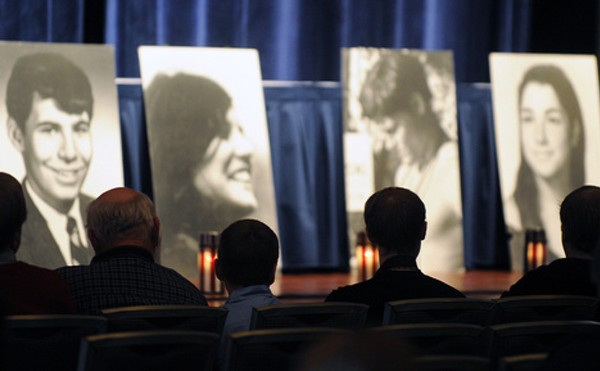I am moved by a sense of nationalistic pride about as often as I am moved to trumpet the benefits and great promises of consumer capitalism.
For everything there is a season, though, and this week I feel a mixture of both as NASA concludes its ambitious, oft-maligned and storied space shuttle program after 30 years, placing a greater share of manned space flight’s future in the invisible hands of the free market, or the well-manicured hands of Sir Richard Branson (who has already spent ludicrous amounts of money solving some problems that NASA struggled with for three decades, in addition to giving his spaceship company the undeniably awesome name “Virgin Galactic Airways”).
It goes almost without saying that, as an American male born in 1977, my earliest concepts of space exploration were derived entirely from the movies “The Empire Strikes Back” and “The Black Hole.” The first factual memory of real space flight that I can recall, however, was in 1986, in the principal’s office at St. Agnes School, when I watched the Space Shuttle Challenger blow up over Cape Canaveral on a color television set. I was feeling sick that day and had gone to the office in hopes of being sent home early. I remember watching the TV with no one else around, alone in a room, just me and a spaceship that caught fire.
I doubt the accuracy of this memory as much as I doubt my recollection that I didn’t talk to any adults about what happened that day, sorting out the whole affair in an after-school symposium of my peers wherein we discovered that the same terrible “Need Another Seven Astronauts” joke had sprung forth fully formed into the minds of every child in my neighborhood within a few hours of the explosion. While my Catholic Spidey-senses sounded immediately and informed me I was definitely going to hell for it, there was something else I regretted other than the tastelessness of that stupid joke. I felt bad because, at 9 years old, we were dealing one another a premature first lesson in cynicism, not only at the expense of a real tragedy, but at the expense of something that is, on its own, fundamentally human: the impulse to explore.
We experienced something of the loss but were, in that formative moment, denied the collective sense of accomplishment and wonder felt by my parents’ generation during the Gemini and Apollo missions. Thinking of it now, though, I can’t help wonder if that same lofty sense of exploration for the sake of greater human understanding wasn’t at odds with the political and military aims of the space race right from the start. When humans finally got the gumption and technology to shoot themselves off the planet for a quick look around and, more importantly, a good look at themselves, it proved to be as much of a pissing contest proxy for military aggression as a moment of reflection for our species.
Increasingly it became clear that NASA’s role as a source of some national or human unity was to take a back seat to its role as an advance team for the military in space, and yet, all these years and military satellites later, the Ruskies and the Yanks have set up light housekeeping together, and you can read Twitter feeds from the International Space Station. Say that out loud one time folks: S-p-a-c-e S-t-a-t-i-o-n. Remember how exciting that’s supposed to be?
More than a few critics have complained that the shuttle program was poorly conceived and never given the funding required to make it truly worthwhile, and that, with a price tag of approximately $200 billion, it failed to be anything more than a costly vanity project for the United States. The balance sheet should make some allowances for the jobs created by the program itself, not to mention the technological revolution that has occurred as a result of the research and development surrounding it.
After virtually continuous debate over the viability of the shuttle design whose operation was exponentially more expensive and cumbersome than initially anticipated, Atlantis will close the book on the program. For better or worse, the shuttle is the spaceship we got, and a big-ass plane strapped to a couple of solid fuel booster-rockets became the iconic symbol of American space travel in my generation. I doff my hat to the spacemen and spacewomen of the space shuttle program. Thank you.
Salute. Thumbs-up.





